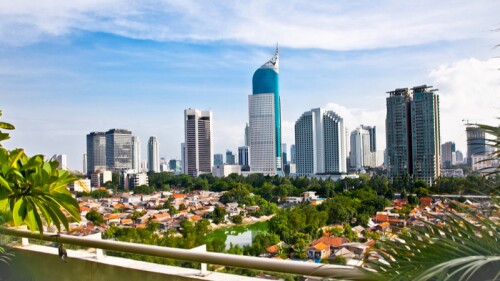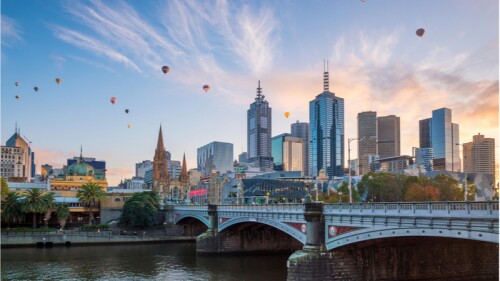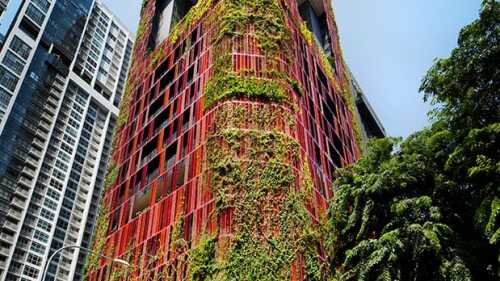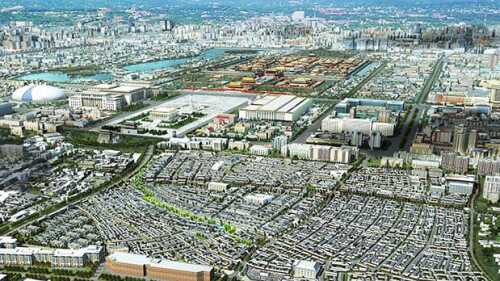Asia Pacific
Insights, trends, and innovation shaping real estate and urban development across the Asia Pacific region’s dynamic markets and cities.
In Jakarta, a city of more than 10 million people, housing affordability has become a major issue—one that likely cannot be solved by the public sector alone, said speakers at a ULI Asia Pacific webinar.
Cities in southern and eastern Asia will likely bear the brunt of climate change, said Edward Mazria, founder and CEO of Architecture 2030, during a ULI Asia Pacific forum on environmental, social, and governance (ESG) in May. Mazria has been a leading advocate for the built environment to reduce its carbon emissions in combating global warming.
The aging demographic profile of developed nations means the built environment may need to accommodate the needs of a growing cohort of people living beyond the expected life spans of the 20th century, according to panelists at the 2021 ULI Asia Pacific Summit.
The Asia Pacific region’s key real estate markets are likely to witness a sustainable and resilient recovery in the next three years, bouncing back from recent weakness triggered by the spread of COVID-19, according to the inaugural ULI Real Estate Economic Forecast report for the region.
During the 2021 ULI Asia Pacific Summit, the leaders of three of the world’s most dynamic cities were interviewed to learn about the past year and their plans for the future.
Twelve outstanding real estate development projects from across the Asia Pacific region have been selected as winners of the 2021 ULI Asia Pacific Awards for Excellence, which is widely recognized as one of the real estate industry’s most prestigious award programs. A ceremony honoring the winners took place at the 2021 ULI Asia Pacific Summit.
The 2021 ULI Asia Pacific Summit brought together a panel of investors and managers with nearly $500 billion of owned or managed real estate to discuss the importance of environment, social, and governance (ESG) standards to the industry.
In a recent ULI webinar, a panel of experts discussed the dynamics of the Asia Pacific region’s fast-growing market for environmental, social, and governance (ESG) related debt. While the growth of the green finance market regionally still lags that in Europe, the pace of adoption is picking up rapidly.
Will the COVID-19 pandemic bring about the end of the viability of open-plan office space? Panelists speaking during a recent ULI Asia Pacific webinar concluded that flexibility, technology, variety, and health would be the key concepts bringing companies and key employees back to offices.
Technology is paving the way for a segment of investors, many of whom are “digital natives,” to explore real estate as an additional part of their investment portfolio and participate financially in the real estate sector like never before, said panelists speaking at the 2021 ULI Singapore Annual Conference, held both virtually and in person in early March.
Singapore
Set against an urban landscape of concrete, steel, and glass in Tanjong Pagar, Singapore’s central business district, Oasia Hotel Downtown (OHD) stands out with its red silhouette clad in lush greenery. An integrated hotel/office development comprising a 27-story, 314-room business hotel and 100 new-age offices, OHD responds to the government’s vision for the precinct earmarked as the island’s next waterfront city with a mix of business, commercial, and residential activities.
Dr. Cheong Koon Hean, chief executive of Singapore’s Housing & Development Board (HDB), was presented with the J.C. Nichols Prize for Visionaries in Urban Development at a January 18 ceremony at the Fullerton Hotel in Singapore.
Known as a multicultural melting pot, Singapore is one of the world’s most forward-thinking cities on embracing density, sustainability, and livability as guiding principles for urban design and development in a resource-constrained environment.
Hong Kong
Two of Asia’s leading entrepreneurs gave real estate investors a glimpse into the worlds of Web 3.0 and deep tech at the ULI Asia Pacific Summit.
Technology and contributions from all stakeholders will be crucial if Asia’s cities are to meet their net zero targets. Earlier this year, a series of three webinars organized by ULI China Mainland covered the efforts and challenges of several cities and organizations around the world to give some focus to the efforts in Beijing, which is one of the cities in ULI’s Net Zero Imperative initiative. The discussions also focused on the Chinese capital as well as Hong Kong and Singapore.
Ensuring inclusion and access to all, embodying Hong Kong’s societal values and global identity, safeguarding Hong Kong’s heritage for future generations, and committing to sustainability are among some of the ideas suggested in a new ULI report on how a Hong Kong harbor development can best serve the local community.













